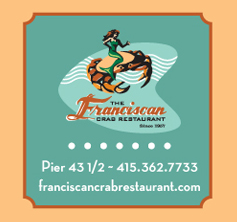There are no second acts in American lives,” F. Scott Fitzgerald grimly observed. He may have been contemplating his own death at the age of 44.
As for no second chapters, it ain’t necessarily so.
Not only is there a second act in many of our lives, there’s even a third. That’s what Jane Fonda said on Charlie Rose the other night.
“We all know from the theater that the third act is most important,” said Fonda. “At the age of 59, I realized this. It’s really important to make the last part of my life count for something.”
An astonishing thing to hear from a woman who created such a varied, fascinating body of work. Speaking of bodies, who could forget Barbarella?
“I wish I could do Barbarella all over again today,” she said. “Of course I am too old, but I would play it so differently, not so submissively.”
You may recall that Barbarella’s outrageous story is about a young, pulchritudinous 41st century astronaut assigned to neutralize the evil Durand Durand. No, not Duran Duran. Dispatching them was someone else’s job. One of Durand’s tricks was to kill a victim through sexual pleasure. Gee, if they had that around today, you couldn’t keep people out of Guantanamo.
Barbarella is where kitsch eventually met the classic. The film cost $9 million to make. It grossed just over $600,000. The producers were not dying of pleasure. Just dying.
Any playwright can tell you that the third act of a play reflects, and even transcends upon, what happened in the first two acts. A third act can redeem the actions of our protagonist; he or she may even be transfigured. Or the hero might be crushed by hubris, or immolated by greed, or destroyed by the demons that could not be outrun. All of the trouble, of course, starts in the earlier part of our lives. Dealing with it in the third act is the intriguing part.
“One thing I regret so terribly is getting on that tank in Hanoi during the Vietnam War,” said Fonda. “It was a crazy, spontaneous act that I’ve been sorry for my whole life. It depicted me so wrongly. I have always supported the fighting men and women in this country. That’s what breaks my heart.”
Fonda said that the whole mess – which branded her as Hanoi Jane – had a good side to it. It brought her in touch with a lot of vets, and she heard their stories. Not all of them were angry with her. A third act is where forgiveness and redemption may occur. I think we’re allowed to screw up in the earlier chapters of our American lives. But now the third act is underway. There’s no turning back now. Time to get serious about the show.
Jane Fonda married some interesting men.
“I wanted a man who was totally different than my father,” she said. That, of course, was the famous actor Henry Fonda. He was cold and aloof and demanded his daughter always look beautiful no matter what. That was her value. She did reconcile with him when she produced and co-starred with him in On Golden Pond. During her first and second acts she married Roger Vadim, who directed Barbarella, and she married Tom Hayden, the politico who still sticks to his left-wing guns, God bless him. Oh, yes, she finally married Ted Turner, that enigmatic, brilliant cultural explorer.
“My favorite moments now are just to be alone,” she said.
Perhaps that takes the most courage – the ability to be at peace with oneself at the end of the day – or when the curtain finally falls.
Bruce Bellingham also writes for the Marina Times and says if he flops in the third act, he’s counting on an epilogue. Cue him at bruce@northsidesf.com.
The Final Word
Second Acts
Second Acts








